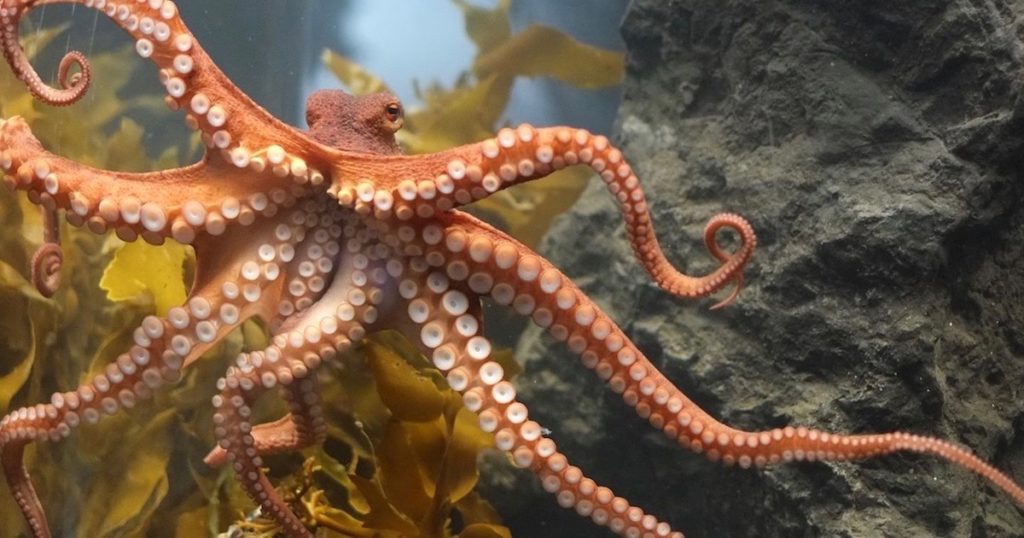 Intelligent Design
Intelligent Design
 Neuroscience & Mind
Neuroscience & Mind
Can Largely Rearranged Genomes Explain Why Octopuses Are So Smart?

Octopuses, squid, and cuttlefish are among the smartest invertebrates, rivaling mammals for complex behavior that can include delaying gratification, having good memories (even in old age), and getting emotional about pain. Yet they are related to life forms like the nautilus which displays few such qualities.
Looking to solve the mystery, researchers began to examine the genomes of the two-spot octopus, the Boston Market squid, and the Hawaiian bobtail squid. And that’s where they discovered something interesting. Squid genomes were arranged differently from those of similar life forms.:
Compared to genomes from some of their mollusk kin, the coleoid cephalopods’ genomes are very divergent, says [Oleg] Simakov. “You have this mosaic of chromosomes, where ancestral chromosomes were broken up and pieces randomly fused to each other, forming new chromosomes.” Even compared to each other, the three genomes are highly rearranged, he notes—a degree of rearrangement that came as a surprise…
Going into the work, Simakov says some researchers expected that the cephalopods’ genomes would reveal an ancient whole-genome duplication. Schmidbaur notes that a chromosome duplication occurred early on in the evolution of vertebrates and the event is often credited with providing the genetic fodder for the group’s complex brains and other notable traits. But no such duplication occurred in coleoid cephalopods, says Simakov. “There is just one copy of each gene, but the chromosomes were still broken up and have undergone — we don’t know the exact mechanism how — movements,” he says. “By combining different pieces of otherwise preserved ancestral chromosomes, new chromosomes formed.”
SOPHIE FESSI, “RESHUFFLED GENOMES MAY EXPLAIN CEPHALOPODS’ SMARTS[” AT THE SCIENTIST (MAY 13, 2022)
The scientists admit that they don’t know just how breaking up and reorganizing the genome results in increased intelligence but it is a promising research avenue.
Both the April 21 paper and the May 4 paper in Nature Communications are open access.
Read the rest at Mind Matters News, published by Discovery Institute’s Bradley Center for Natural and Artificial Intelligence.
